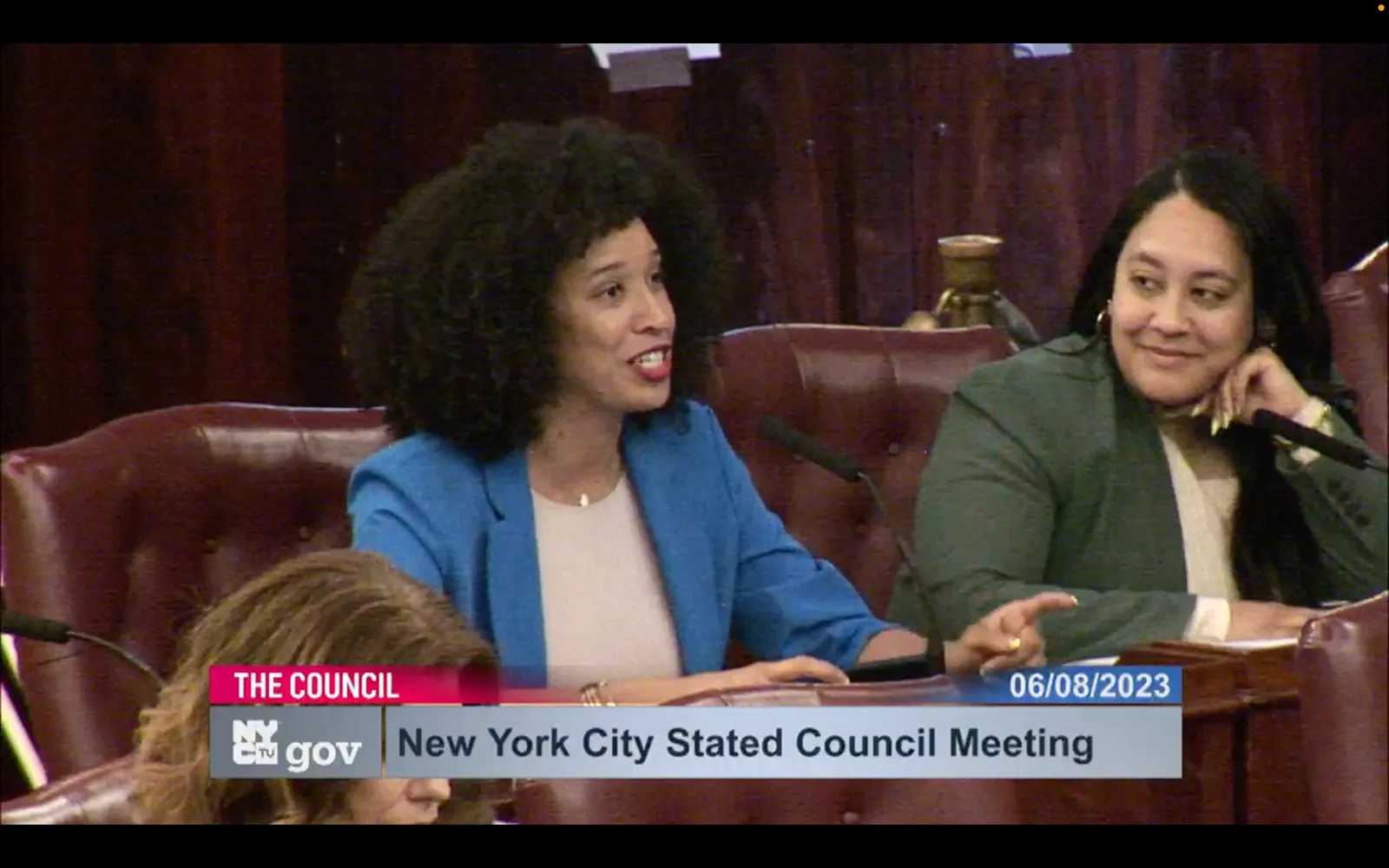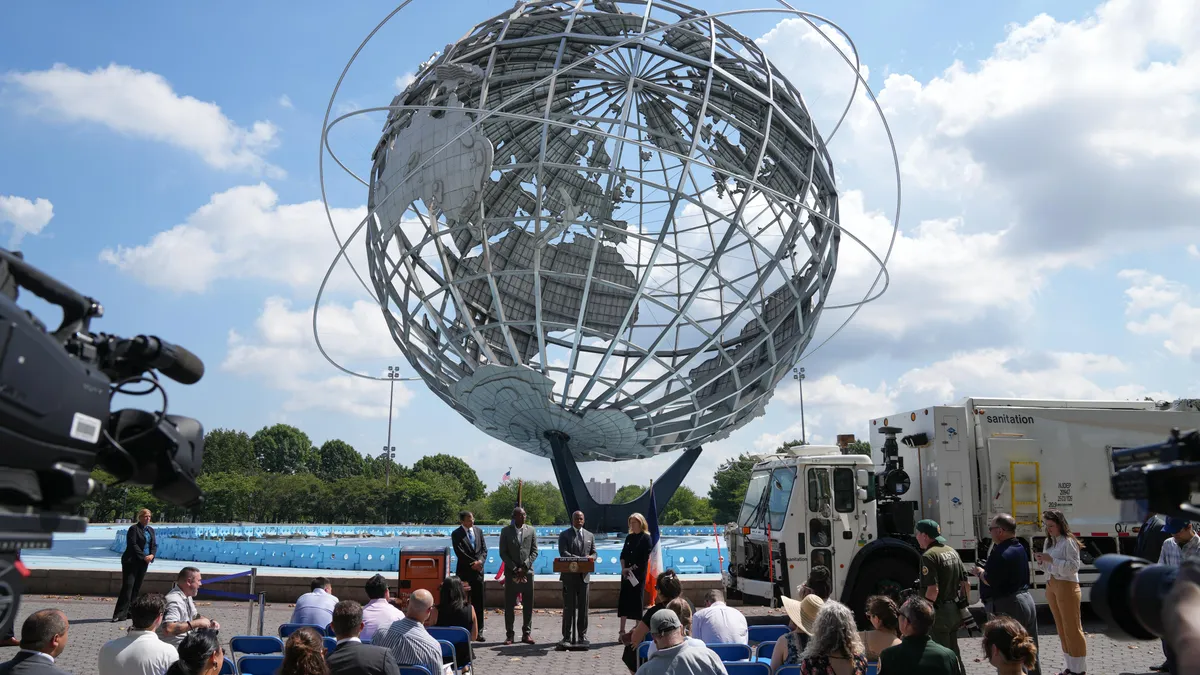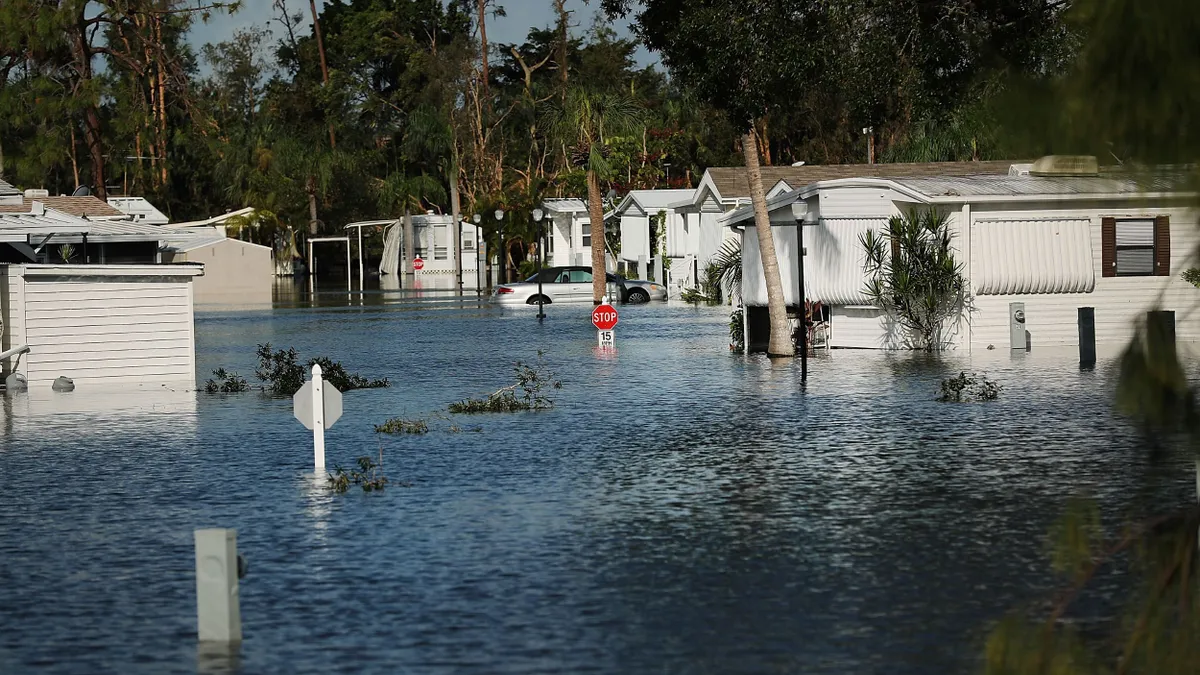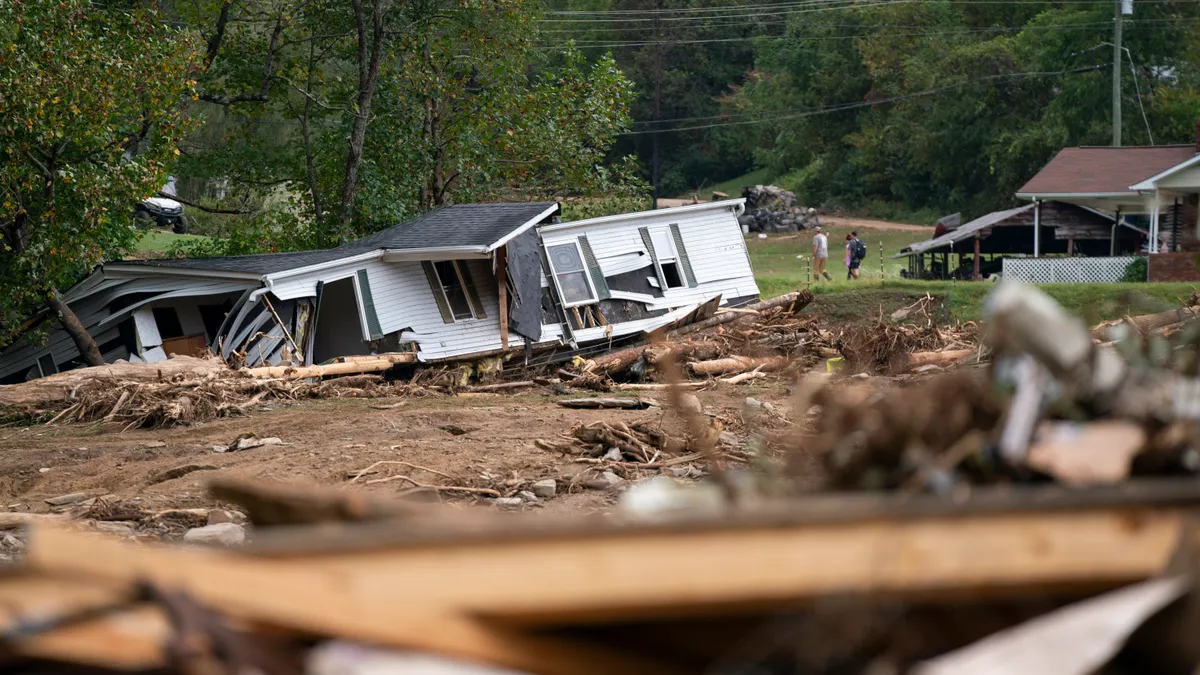The New York City Council passed five bills on Thursday that legislators hope will add further momentum to organics diversion efforts, codify zero waste targets and expand recycling access.
The package was introduced in April 2022 with a significant number of co-sponsors, including Council Speaker Adrienne Adams. All bills passed with 49 votes (in a 51-member body), with the exception of a curbside organics bill, which received 43 votes. The bills would require the city’s Department of Sanitation to:
- Offer residential curbside organics collection citywide by October 2024. Participation would be mandatory, and building owners could receive compliance violations starting in April 2025. (Intro. 244-A)
- Formally establish a goal of diverting 100% of “citywide-generated recyclable waste” from landfills or incinerators by 2030 and to deliver regular reports on the goal’s feasibility. (Intro. 274-A)
- Present a plan by January 2024 on achieving this goal and then submit annual reports, starting in October 2024, on a detailed range of data and factors about recycling systems. (Intro. 275-A)
- Establish at least two drop-off recycling centers in each community district (of which there are 59) by the end of 2024 and host one community recycling event in each district per year. The centers would accept “inorganic material that is not collected through regular curbside collection but that can be recycled or reused,” with one center per borough accepting hazardous waste. (Intro. 280-A)
- Establish at least 30 organic waste drop-off sites citywide by April 2024, with at least three in each borough. (Intro. 281-B)

“A good waste system is not simply a matter of convenience, but a matter of environmental justice and equity,” said Council Member Sandy Nurse, chair of the council’s sanitation committee and a lead sponsor on the package, during Thursday’s meeting. “These bills are an act of real solidarity with communities that are fighting for clean air and water, like in New Jersey, Pennsylvania and upstate New York, where we send millions and millions of pounds of waste every day.”
It’s not immediately clear how the mandatory organics recycling bill could affect DSNY’s plans to expand a voluntary program. DSNY declined to take a direct stance on the package and deferred to Mayor Eric Adams. The mayor’s office also didn’t take a stance, instead touting the voluntary program.
“This administration took office promising to get compostable material out of the black bags and out of the landfills. We designed a program that works for everyone — efficient and cost-effective,” said a city hall spokesperson via email. “We’re doubling down on what works, and appreciate that the City Council shares our commitment to fighting the rats and helping the planet.”
DSNY appears to have had some involvement in the discussions, as Council Member Shahana Hanif (lead sponsor on the organics bill) thanked the agency “for the collaboration in getting this bill across the finish line” on Thursday.
The debate around mandatory or voluntary organics programs has been happening for years, including under prior council leadership and mayoral administrations. Then-Mayor Bill de Blasio included it as part of a 2015 goal to achieve “zero waste to landfill” by 2030, but progress was stymied in part by pandemic budget cuts.
In June 2022 council testimony, DSNY Commissioner Jessica Tisch said, “I believe you have to give people voluntary access to curbside food waste collection and allow them to develop the muscle memory of separating out their food waste material before we contemplate mandatory programs.”
Hanif framed her bill’s approach as a way to make the program more cost-effective, which has been a concern.
“Collections will be mandatory weekly and year-round, allowing us to reach the needed environmental impact to meet the climate crisis and achieve economic efficiencies that will help the city financially,” she said.
The city’s previously announced organics program will build on a recent pilot in Queens, as well as a prior opt-in program in certain areas. DSNY is also updating its rules to make yard waste separation mandatory in connection to the rollout. This will start with existing service in Queens, followed by expanding service to Brooklyn in October, the Bronx and Staten Island in March 2024, and Manhattan in October 2024.
“We designed a program that works for everyone — easy, no drama, focused on service. New Yorkers just put their compostable material out on their recycling day, and we come get it to make compost or renewable energy,” said Tisch in a statement.
The broader zero waste goal, which was always recognized as ambitious, has become less prominent since Adams took office. During her June 2022 testimony, Tisch said “we’re simply not on a path toward zero waste by 2030 on our current trajectory.” As of March, the FY23 diversion rate was 17.3%.
This rate does not include commercial material, which is handled by private haulers. Certain categories of city businesses are already required to divert organic waste, though enforcement was not a priority during the initial pandemic years.
In 2022, Tisch said DSNY supported the zero waste reporting bill and was already on track to achieve the requirements of the organics drop-off bill. At the time, the agency had qualms about the costs and permitting requirements associated with the community recycling center bill.
Fiscal impact statements estimate the agency could pay for many of the package’s requirements using existing resources, with the exception of the recycling centers. The council estimated it would cost $600,000 per year to host annual recycling events in each district. There would also be a one-time cost of $2 million to set up one additional recycling center per borough, as each borough already has one location.
Questions remain about the cost, education and composting or anaerobic digestion processing capacity for the organics expansion. Mandatory organics recycling is less common in the U.S. outside of certain West Coast markets such as California.
Even U.S. cities with longstanding and mandatory organics recycling programs, such as Seattle and San Francisco, have room for improvement in terms of reducing their contamination rates and disposal volumes. Environmental groups contend that making organics recycling mandatory can potentially reduce disposal costs.
“[T]he experience in other cities with successful organics collections programs has proven that municipalities must make such programs mandatory and build public support to ensure their effectiveness,” said Eric Goldstein, a senior attorney with the Natural Resources Defense Council, in a recent post. “Cities like Seattle have demonstrated that curbside organics collection programs are not only useful in curbing global warming emissions, but in saving money for local taxpayers too.”
The council has 30 days to override a potential mayoral veto of any bills with at least 34 votes.





















